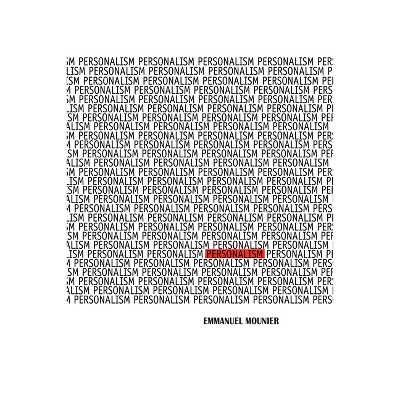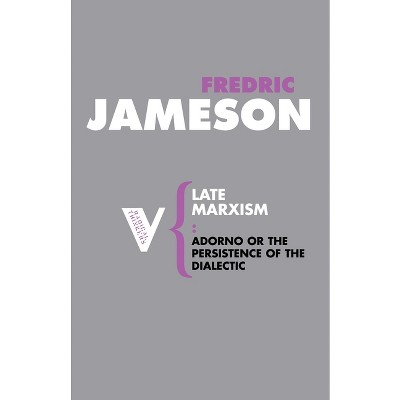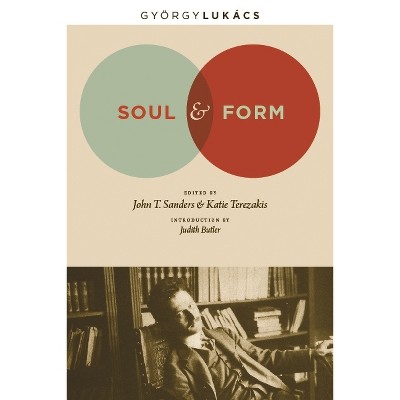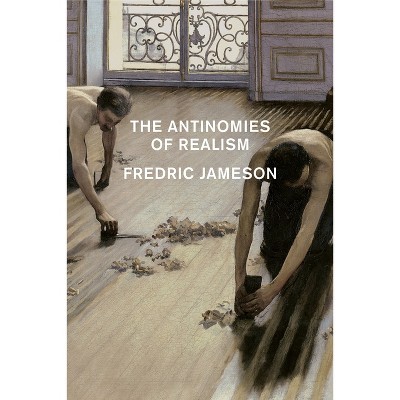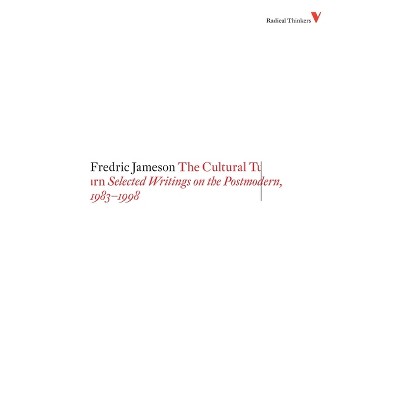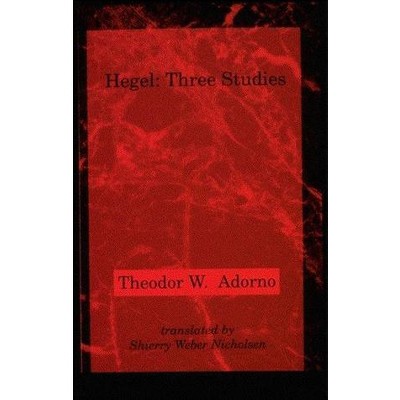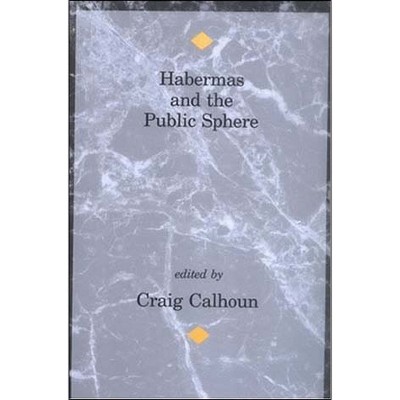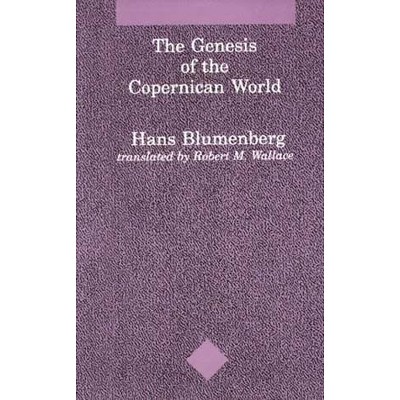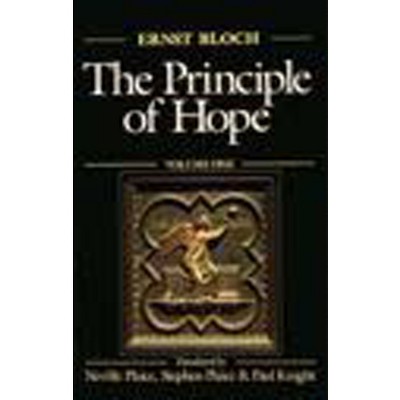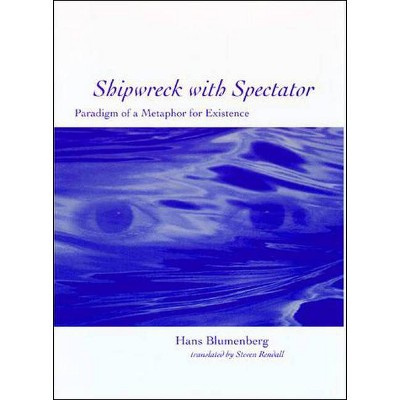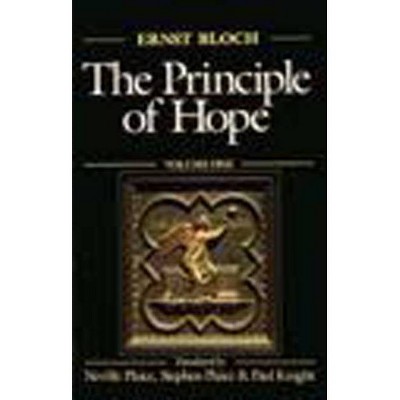Sponsored

Adorno's Negative Dialectic - (Studies in Contemporary German Social Thought) by Brian O'Connor (Paperback)
$30.00
In Stock
Eligible for registries and wish lists
Sponsored
About this item
Highlights
- The purely philosophical concerns of Theodor W. Adorno's negative dialectic would seem to be far removed from the concreteness of critical theory; Adorno's philosophy considers perhaps the most traditional subject of "pure" philosophy, the structure of experience, whereas critical theory examines specific aspects of society.
- About the Author: Brian O'Connor is Senior Lecturer in the School of Philosophy at University College Dublin.
- 224 Pages
- Philosophy, History & Surveys
- Series Name: Studies in Contemporary German Social Thought
Description
About the Book
An analysis of how Adorno's "pure" philosophy can be seen to provide a justification of the rationality required by critical theory.Book Synopsis
The purely philosophical concerns of Theodor W. Adorno's negative dialectic would seem to be far removed from the concreteness of critical theory; Adorno's philosophy considers perhaps the most traditional subject of "pure" philosophy, the structure of experience, whereas critical theory examines specific aspects of society. But, as Brian O'Connor demonstrates in this highly original interpretation of Adorno's philosophy, the negative dialectic can be seen as the theoretical foundation of the reflexivity or critical rationality required by critical theory. Adorno, O'Connor argues, is committed to the "concretion" of philosophy: his thesis of nonidentity attempts to show that reality is not reducible to appearances. This lays the foundation for the applied "concrete" critique of appearances that is essential to the possibility of critical theory. To explicate the context in which Adorno's philosophy operates--the tradition of modern German philosophy, from Kant to Heidegger--O'Connor examines in detail the ideas of these philosophers as well as Adorno's self-defining differences with them. O'Connor discusses Georg Lucà cs and the influence of his "protocritical theory" on Adorno's thought; the elements of Kant's and Hegel's German idealism appropriated by Adorno for his theory of subject-object mediation; the priority of the object and the agency of the subject in Adorno's epistemology; and Adorno's important critiques of Kant and the phenomenology of Heidegger and Husserl, critiques that both illuminate Adorno's key concepts and reveal his construction of critical theory through an engagement with the problems of philosophy.Review Quotes
"Brian O'Connor has crafted a timely and robust contribution to the ongoing reception of Adorno's work. He provides a much needed and exceedingly lucid treatment of Adorno's central concerns with the nature of the object of experience and the shape of subjectivity, with specific reference to the achievements of Kant and Hegel, around and within which Adorno situated his own project."--Tom Huhn, School of Visual Arts, New York
"Brian O'Connor has produced an elegant and persuasive defense of the epistemological core of Adorno's philosophy: the priority of the object for the possibility of experience. His analysis of Adorno's transcendental strategy is novel and challenging. An invaluable contribution to Adorno studies."--J. M. Bernstein, author of "Adorno: Disenchantment and Ethics"
"O'Connor takes Adorno seriously as a philosopher, rather than regarding the philosophy as a mere epiphenomenon of the social theory. Taking full account of important recent work in German, he also brings a clear and analytical intelligence to the dissection and reconstruction of some of Adorno's central arguments. O'Connor's study makes Adorno's vital and detailed contributions to epistemology and metaphysics harder than ever to ignore."--Simon Jarvis, University of Cambridge, author of "Adorno: A Critical Introduction"
" Brian O'Connor has crafted a timely and robust contribution to the ongoing reception of Adorno's work. He provides a much needed and exceedingly lucid treatment of Adorno's central concerns with the nature of the object of experience and the shape of subjectivity, with specific reference to the achievements of Kant and Hegel, around and within which Adorno situated his own project." --Tom Huhn, School of Visual Arts, New York
" Brian O'Connor has produced an elegant and persuasive defense of the epistemological core of Adorno's philosophy: the priority of the object for the possibility of experience. His analysis of Adorno's transcendental strategy is novel and challenging. An invaluable contribution to Adorno studies." --J. M. Bernstein, author of Adorno: Disenchantment and Ethics
" O'Connor takes Adorno seriously as a philosopher, rather than regarding the philosophy as a mere epiphenomenon of the social theory. Taking full account of important recent work in German, he also brings a clear and analytical intelligence to the dissection and reconstruction of some of Adorno's central arguments. O'Connor's study makes Adorno's vital and detailed contributions to epistemology and metaphysics harder than ever to ignore." --Simon Jarvis, University of Cambridge, author of Adorno: A Critical Introduction
" Brian O'Connor has crafted a timely and robust contribution to the ongoing reception of Adorno's work. He provides a much needed and exceedingly lucid treatment of Adorno's central concerns with the nature of the object of experience and the shape of subjectivity, with specific reference to the achievements of Kant and Hegel, around and within which Adorno situated his own project." --Tom Huhn, School of Visual Arts, New York
" Brian O'Connor has produced an elegant and persuasive defense of the epistemological core of Adorno's philosophy: the priority of the object for the possibility of experience. His analysis of Adorno's transcendental strategy is novel and challenging. An invaluable contribution to Adorno studies." --J. M. Bernstein, author of "Adorno: Disenchantment and Ethics"
" O'Connor takes Adorno seriously as a philosopher, rather than regarding the philosophy as a mere epiphenomenon of the social theory. Taking full account of important recent work in German, he also brings a clear and analytical intelligence to the dissection and reconstruction of some of Adorno's central arguments. O'Connor's study makes Adorno's vital and detailed contributions to epistemology and metaphysics harder than ever to ignore." --Simon Jarvis, University of Cambridge, author of "Adorno: A Critical Introduction"
--J. M. Bernstein, author of "Adorno: Disenchantment and Ethics"
--Simon Jarvis, University of Cambridge, author of "Adorno: A Critical Introduction"
--Tom Huhn, School of Visual Arts, New York
About the Author
Brian O'Connor is Senior Lecturer in the School of Philosophy at University College Dublin.Dimensions (Overall): 9.06 Inches (H) x 6.1 Inches (W) x .49 Inches (D)
Weight: .69 Pounds
Suggested Age: 22 Years and Up
Number of Pages: 224
Series Title: Studies in Contemporary German Social Thought
Genre: Philosophy
Sub-Genre: History & Surveys
Publisher: MIT Press
Theme: Modern
Format: Paperback
Author: Brian O'Connor
Language: English
Street Date: August 12, 2005
TCIN: 92892311
UPC: 9780262651080
Item Number (DPCI): 247-12-8247
Origin: Made in the USA or Imported
If the item details aren’t accurate or complete, we want to know about it.
Shipping details
Estimated ship dimensions: 0.49 inches length x 6.1 inches width x 9.06 inches height
Estimated ship weight: 0.69 pounds
We regret that this item cannot be shipped to PO Boxes.
This item cannot be shipped to the following locations: American Samoa (see also separate entry under AS), Guam (see also separate entry under GU), Northern Mariana Islands, Puerto Rico (see also separate entry under PR), United States Minor Outlying Islands, Virgin Islands, U.S., APO/FPO
Return details
This item can be returned to any Target store or Target.com.
This item must be returned within 90 days of the date it was purchased in store, shipped, delivered by a Shipt shopper, or made ready for pickup.
See the return policy for complete information.


